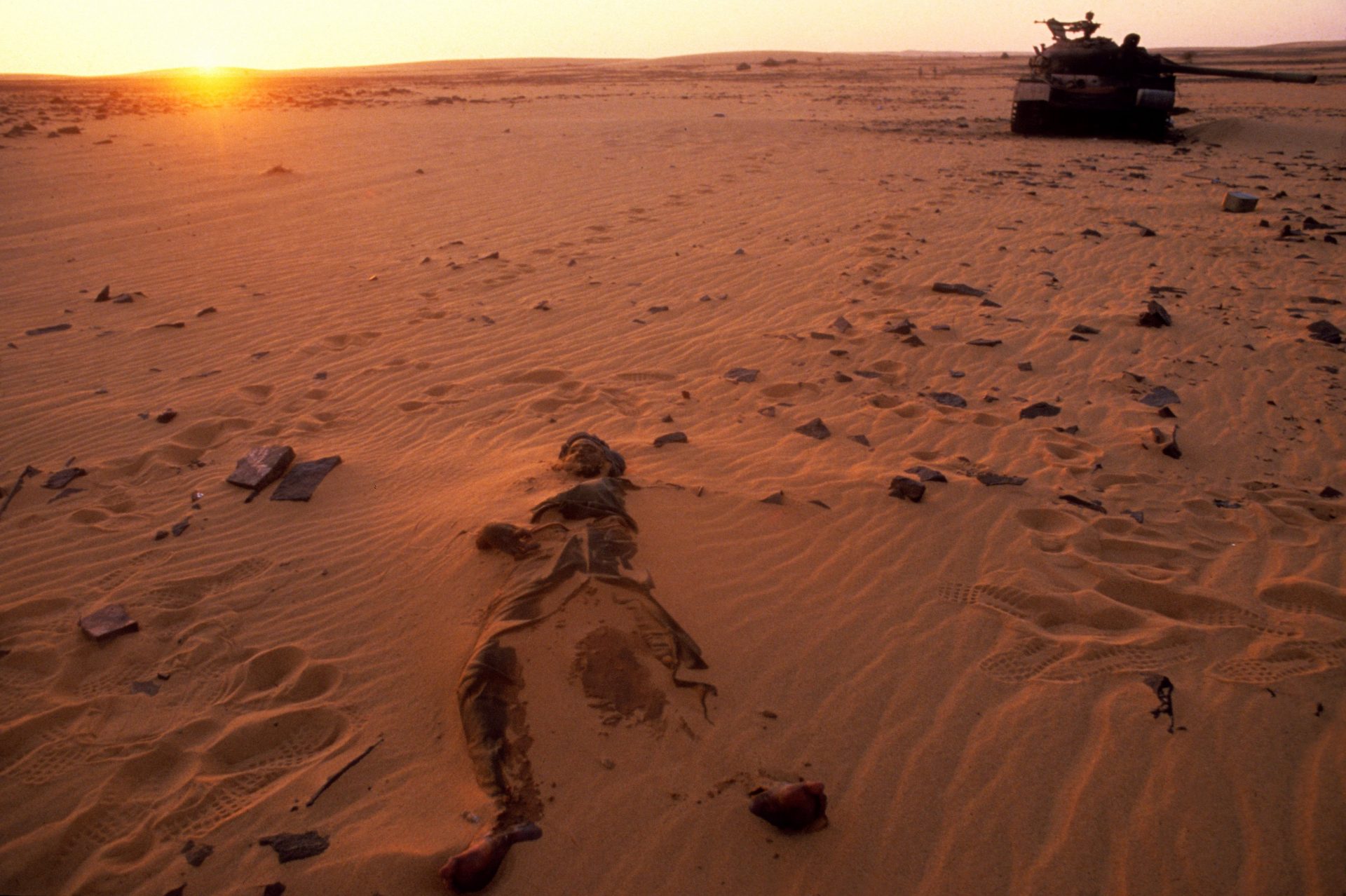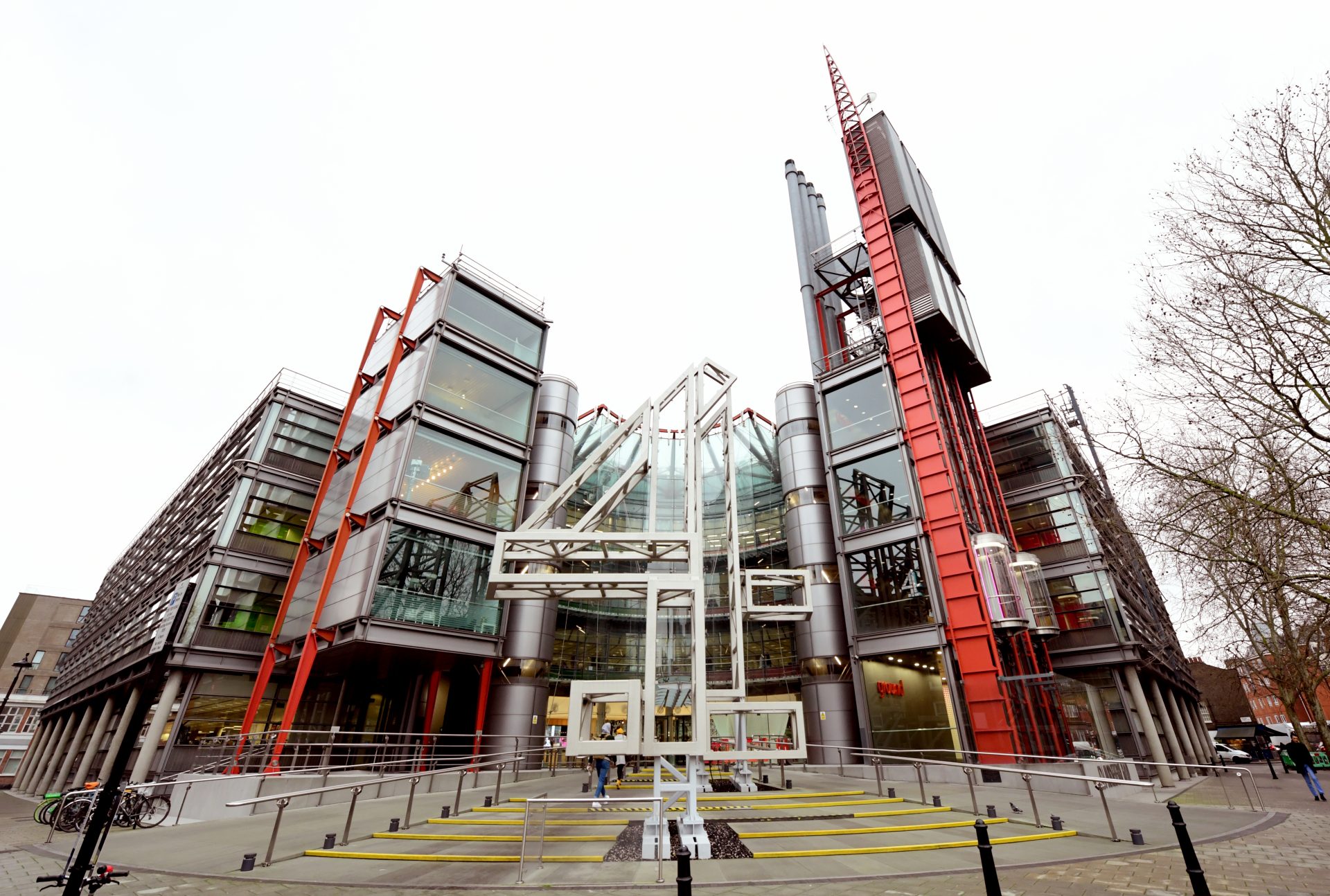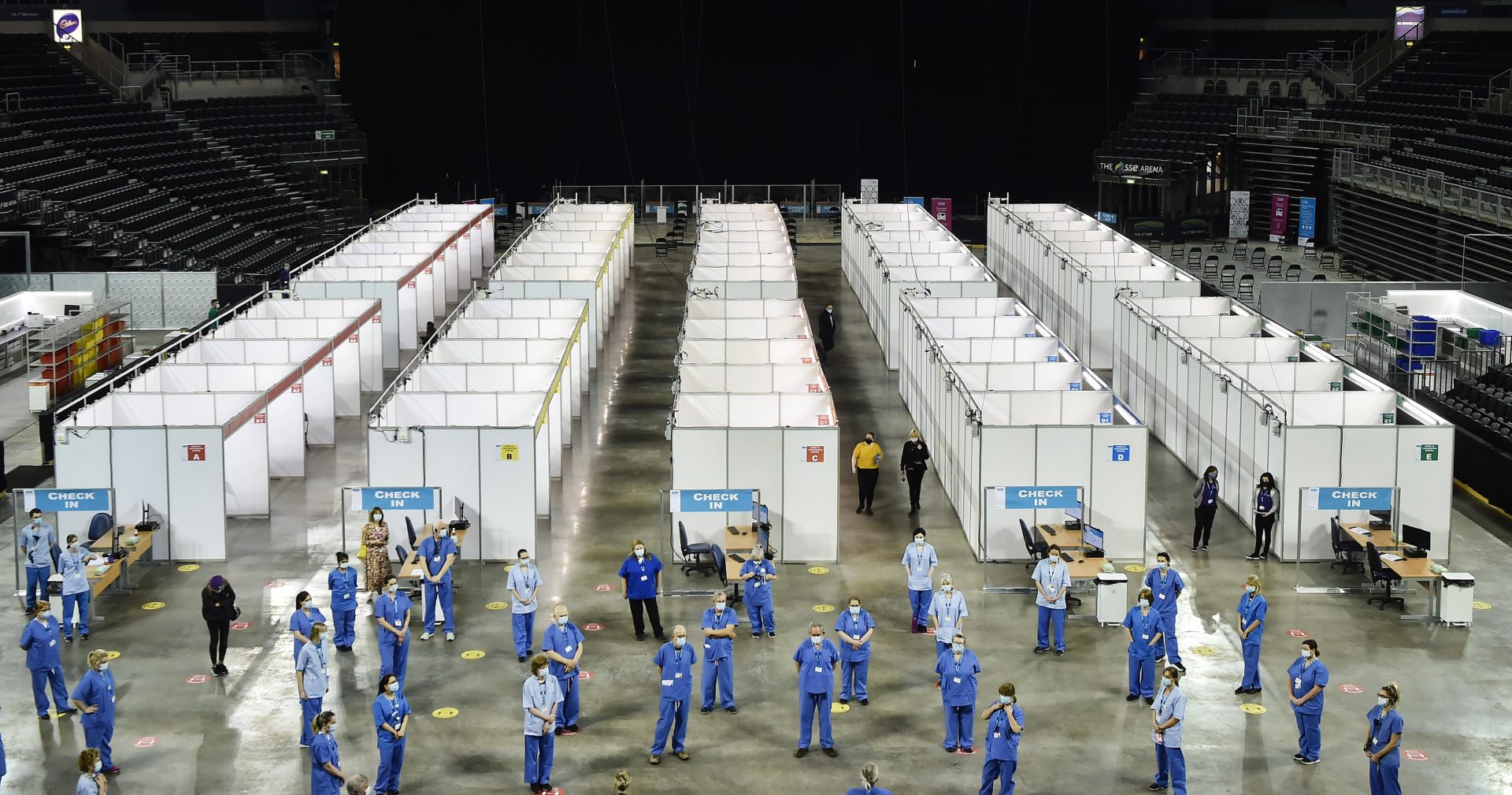Sometime in late 1983 or very early 1984, I traveled to Ouagadougou, the capital of a West African country then called Upper Volta, to get a sense of a man whose recent rise to power was already a sensation throughout the continent.
I was an inexperienced reporter – to be truthful, not even a full-fledged journalist yet. At the age of 33, almost a decade older than me, Thomas Sankara had just become president of a landlocked, drought-afflicted country that had gained independence from France in 1960 and remained one of the world’s poorest places and the near-perfect definition of a political backwater.
I met Sankara by happy accident shortly after arriving in Ouagadougou by train from Abidjan, in Ivory Coast, where I lived. Somehow I had gotten word of a public meeting he was holding in a quiet neighbourhood in the city, and made it there in time to find him sitting in a tree-shaded spot and engaging in relaxed conversation with a group of ordinary citizens.
As the lone foreigner present, and a quite tall one at that, I soon caught Sankara’s eye. He asked me to introduce myself, and I said that I was a reporter from the United States. Sankara inquired what America made of his country’s new revolution, causing me to stumble awkwardly through an unprepared answer.
Then, smiling, he urged me to sit down and, speaking as much to the murmuring crowd as to me, said that as a foreign “friend”, I was welcome.
Sankara had put his small country in the news and begun shaking up his region not by executing opponents or expelling migrant trading communities from distant continents or declaring himself emperor, president for life, or field marshal, as was happening around this time in other African countries.
Instead, he made clear there would be no tolerance for self-enrichment by officials and banned the use of limousines by high-ranking members of his government. He even rejected the idea of promoting himself from the rank of army captain.
A voracious reader and intellectually nimble junior officer who had been trained by the French military in Madagascar and lived briefly in Paris, Sankara had become a national hero by the age of 25 in a brief and futile border war with Mali, but this was as much for his outspoken pacifism as for any action in battle.
The unpopular government, trying to take advantage of his fame, named him prime minister in 1983, only to detain him a few months later for his overt progressivism. He became president just a few months before my visit, following a military coup engineered by one of his closest friends, army captain Blaise Compaoré.
To be sure, many of Sankara’s early moves were symbolic and almost playfully populist (though he always bridled at that term). These included riding a bicycle around Ouagadougou and popping up impromptu, sometimes in light disguise, to engage with people in encounters like the one I witnessed.
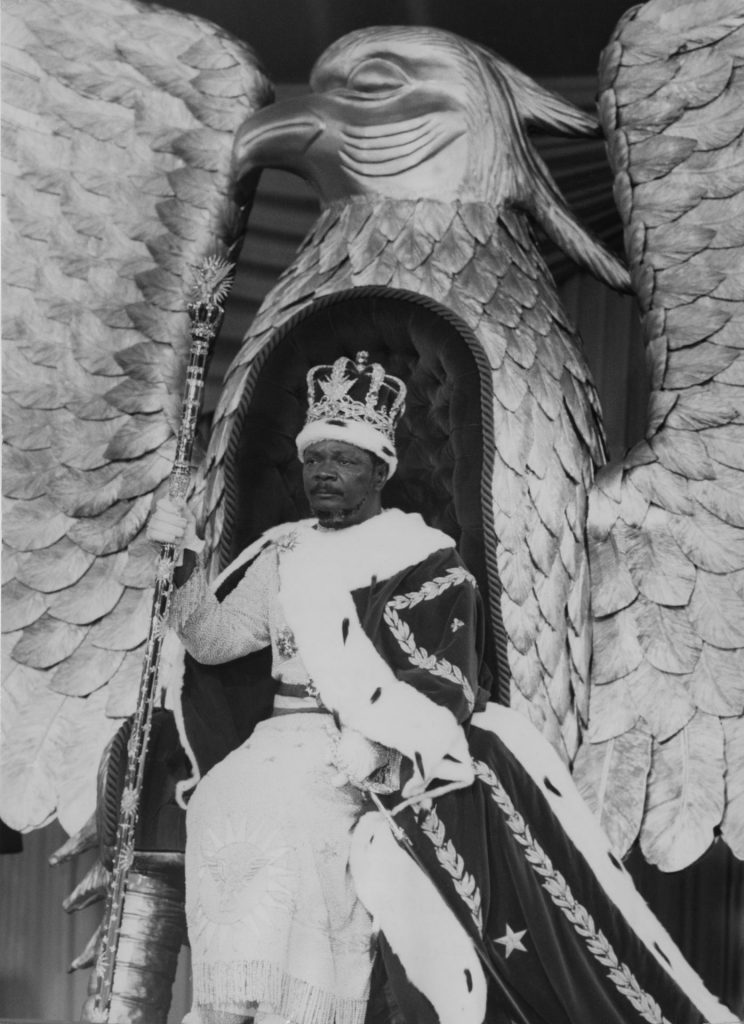
But in time, they were followed by more meaningful actions that announced an utterly new kind of politics in deeply conservative and profoundly corrupt West Africa.
For example, Sankara urged African countries to mobilise jointly against repayment of onerous debt to Western countries, which had helped sustain rotten regimes and which he called immoral. And long before it became fashionable at the level of national politics, even in the West, he talked up the threat of global climate change, which he called the “perturbation of the seasons”.
Sankara pushed a range of ambitious environmental policies in his country, including an enormous tree-planting campaign and the extensive digging of rural wells to provide water security to peasants. And his improvement of public health services, including a mass immunisation program against common, preventable diseases, won widespread praise from international aid organisations.
Although he never used the term, Sankara also became an outspoken proponent of feminism, pushing for women’s rights, respect for the dignity of their work, and their representation in public affairs.
In a country that had always been dominated by men, his government implemented a 30% female quota for all government offices, and appointed women as heads of ten out of 30 provinces.
He inveighed against female circumcision and polygamy, alienating many men and some women, too, in a traditionalist society heavily weighted toward its rural inhabitants. And in a sly inversion of gender roles, he decreed a state-sanctioned day of “husbands to the markets,” on which men were urged to buy household provisions instead of sending their wives. “The state does not compel anyone into marriage, but requires that he who founds a family fulfills his responsibilities,” Sankara said in one speech, quoted in Brian J. Peterson’s Thomas Sankara: A Revolutionary in Cold War Africa.
There are men who transform their wife into an all-purpose maid, but while refusing her a salary that goes with a maid.”
Peterson describes his book as “the first full-scale biography and booklength academic study of Thomas Sankara in English.” It is much more than that, though. It is one of the most fully realised biographies of a modern African political figure in recent years, and a striking portrayal not just of this fascinating and ultimately tragic statesman but of an entire political era on the continent.
Sankara’s progressive politics, which drew from an eclectic range of influences – Marx, Lenin, and Mao, but also Catholic liberation theology, Frantz Fanon, Fidel Castro, and anticolonial liberation movements in Portuguese-speaking Africa and Algeria – would have been more in tune with the times a decade or two earlier, when memories of Africa’s independence era were still fresh and leaders of many countries were eagerly experimenting with Marxism.
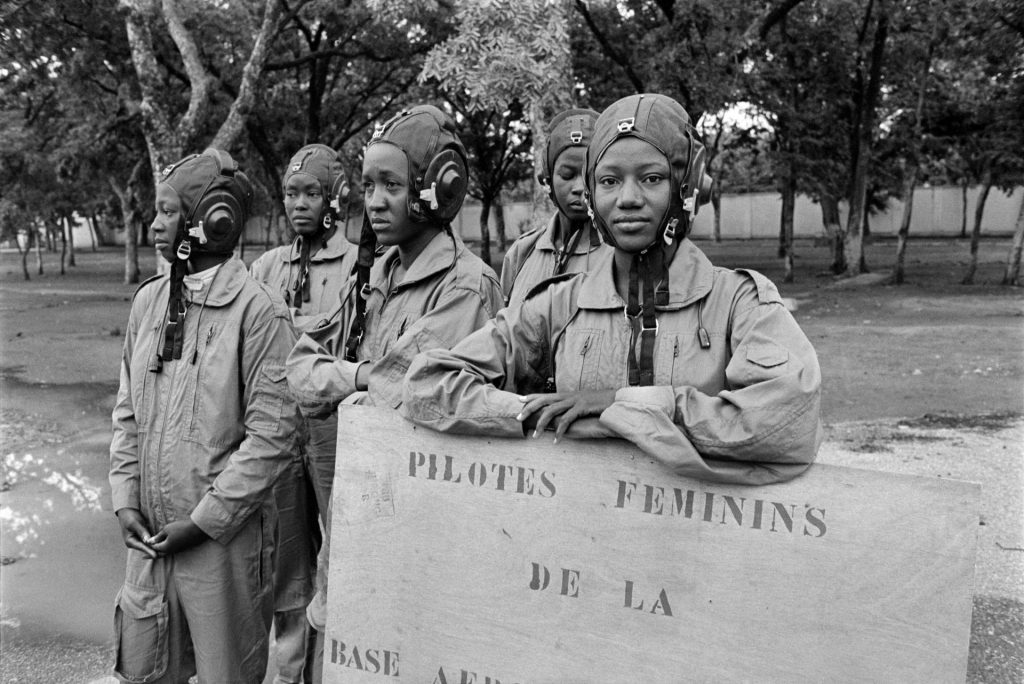
But in the early 1980s his style faced the heavy tides of a period when Reaganism and Thatcherism were ascendant and, even more importantly for his country, when France still behaved as if the independence of its former colonies were a mere formality. This is widely remembered as the continent’s ‘lost decade’, after the International Monetary Fund and the World Bank imposed harsh fiscal austerity regimes and the abandonment of capital controls on African states as a condition for their funds, as part of the so-called Washington Consensus.
For Africans, this meant the drastic shrinking of government services, from education to health care, and a brutal regression in living conditions for millions of poor people. Sankara, in defiant contrast, increased funding for education by 26% per student between 1983 and 1987, according to Peterson.
By this stage of the cold war, Western powers were seeing third-world bogeymen everywhere they looked. The American ambassador personally delivered a warning to Sankara in his austere presidential office, telling him that if he continued to express rhetorical support for socialists in the Western Hemisphere, like the Sandinistas in Nicaragua or the Marxist-Leninists in tiny Grenada, which the United States invaded in October 1983 in order to overthrow its leftist government, Washington would stop providing economic assistance to Ouagadougou.
Sankara calmly told the ambassador that he would not be blackmailed and “would refuse American aid if necessary”. At the time, Peterson writes, in the midst of a famine, the US was providing the country with more emergency food relief than any other donor, and although Sankara later made a number of conciliatory gestures, American assistance dried up. The next US ambassador was directed to sustain the pressure but gradually came to believe that Washington’s antagonism was badly misplaced. He wrote: “I thought Sankara might be something different for Africa. That’s why I wanted that post. The more I read into it, the more I liked this guy Thomas Sankara. I said to myself, ‘Here’s a guy who shows no signs of being corrupt’.”
A cable from the embassy reported that Sankara’s “austerity measures, proudly introduced without outside coaching, would make even the IMF happy”.
France, meanwhile, looked with alarm at the spreading influence in sub-Saharan Africa of the Libyan leader Muammar Gaddafi. It regarded any political or military advance of his in the region as something that must be contained or reversed, lest Paris’s authoritarian dependencies in the region start falling like dominoes.
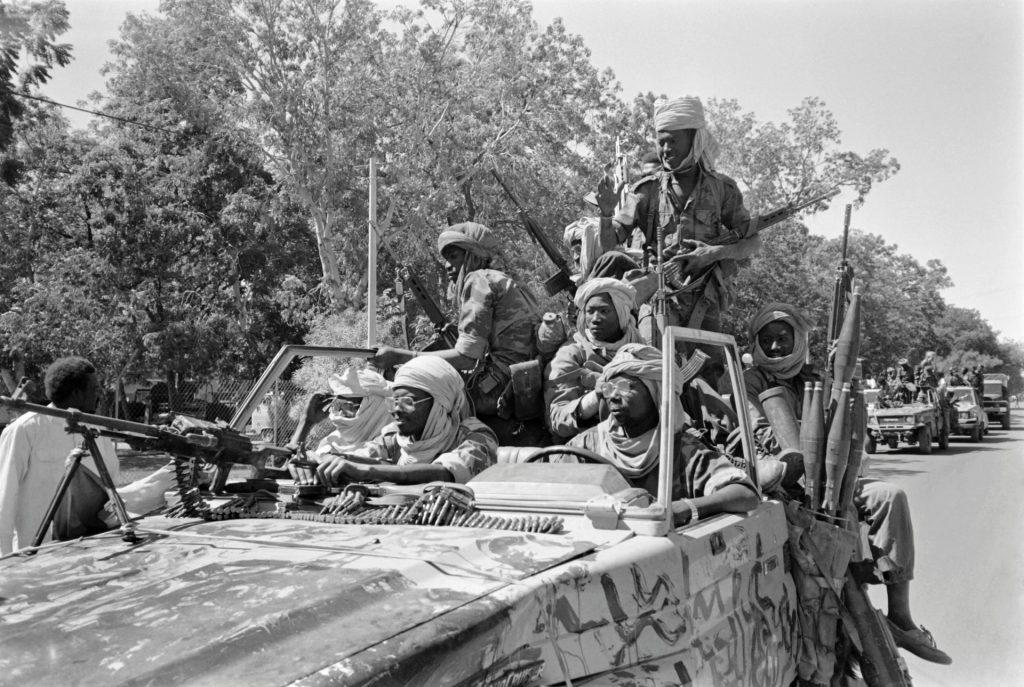
The French press described Sankara as a virtual puppet of Gaddafi, and Peterson recounts multiple instances when the government appeared to be involved in plotting his overthrow or assassination.
The solidarity between Sankara and Gaddafi was greatly exaggerated, however, as I came to know from personal experience. During a subsequent visit to the country that coincided with Gaddafi’s arrival there, I witnessed a fierce dispute between Sankara and the Libyan leader over my permission to follow their motorcade during a trip to the base at a southern town called Po that had been used by Compaoré to launch his coup in 1983.
Gaddafi objected to the presence of an American, but Sankara insisted that he knew me and overruled his angry guest. More importantly, as Peterson’s book documents, Sankara’s government received precious little aid from Libya, or for that matter from the Soviet bloc.
Nearly a year after my initial visit, on the first anniversary of the coup that brought him to power, Sankara renamed his country Burkina Faso, which Peterson translates as ‘Country of Honest People’, but the name has also been rendered as ‘Land of Upright People’, which captures Sankara’s spirit.
Yet there were already serious internal divisions that would eventually make the new leader vulnerable. “Strident demands for more radical policies recently split the new government, causing an internal crisis,” I reported at the time in the Washington Post
In 1984, on 12 hours’ notice, I travelled at the request of the Post to Chad, oil-rich Libya’s southern neighbour – the first of countless hastily arranged trips in my life as a foreign correspondent.
There, earlier that year, Paris had launched its largest overseas military operation since the Algerian War, in a new flare-up of an on-again, off-again proxy war for dominance over Chad that pitted France against Libya.
The scenes of destruction I encountered in N’Djamena, the capital, astonished me. Nearly every building in the small, colonial-era downtown had been badly damaged during a recent round of fighting, when the forces of the Libyan-backed insurgent leader Goukouni Oueddei had indiscriminately fired Soviet antiaircraft guns mounted on Toyota pickups, killing at least 7,000.
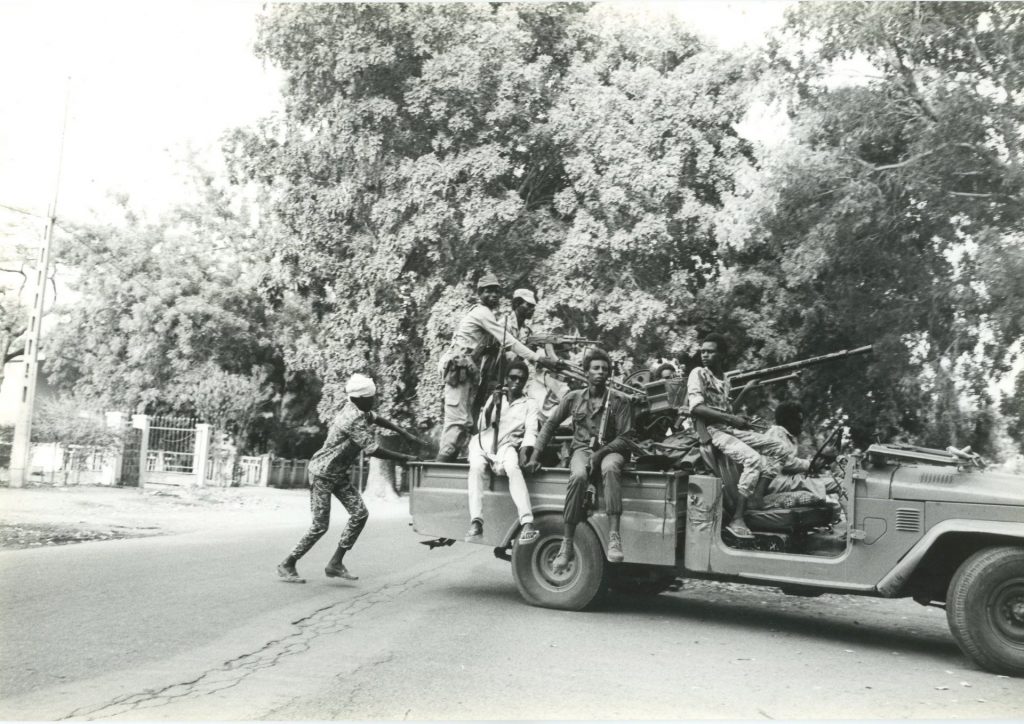
A day or two later, I was flown by helicopter to the front in the deserts of eastern Chad, where French jets flying low over the desert were bombing the positions of Libya’s rebel allies.
Operation Manta, as that French deployment was known, marked the end of any remaining illusions in Africa that François Mitterrand, the longtime Socialist Party leader who had been elected French president in May 1981, would give substance to the progressive third-worldist rhetoric of his time in opposition.
Mitterrand instead stuck resolutely to France’s long-standing obsession with retaining control over its former colonies on the continent, through a variety of political and economic means backed by the frequent use of military force.
France’s resort to arms in Africa had reached a peak late in the preceding decade. According to a partial tally by Nathaniel K. Powell in his France’s Wars in Chad: Military Intervention and Decolonization in Africa, French mercenaries unsuccessfully attempted to overthrow a Marxist regime in Benin in 1977 and intervened in Mauritania that same year against the Western Sahara rebellion. And in 1978 and 1979 France intervened in Zaire to put down a rebellion backed by neighbouring Angola.
The French had fought to take over Chad, long seen as both remote and bereft of profitable resources, mostly to keep it out of British hands. As Marielle Debos recounts in Living by the Gun in Chad: Combatants, Impunity and State Formation, by the time it was formally decreed a colony in 1920, France had scant appetite for actually administering it.
Instead, Paris labelled the far southern reaches of the country, which receive regular rainfall, ‘Le Tchad Utile’, and paid little attention to the rest. By independence in 1960, Chad had almost no paved roads, and there were only three high schools for a population of 3.5m. What passed for governance was an abject form of indirect rule carried out by French “novices and adventurers”, Debos writes. “Extortion was authorised by the colonial bureaucracy,” and whoever enjoyed local authority “did not hesitate to rob and pillage.”
When I interviewed Chad’s president, Idriss Déby, for the New York Times in 2007 about his recent turn to China as an alternative to France, his answer deflected to Africa generally but sounded like an apt description of his own country’s history. “In what manner has Africa progressed, in what sector?” he asked me. “Whatever the good will of Africa’s old friends and the old partners in its development, it has not progressed at all.”
In 1991 he had overthrown the dictator Hissène Habré, after serving as his army chief. Déby survived as long as he did not through business with China but by offering his country’s army to fight against Islamic insurgencies spreading throughout the Sahel – the broad band of semi-arid savanna lands that stretches beneath the Sahara from Mauritania in the west to Sudan, far to the east – on behalf of France and the US.
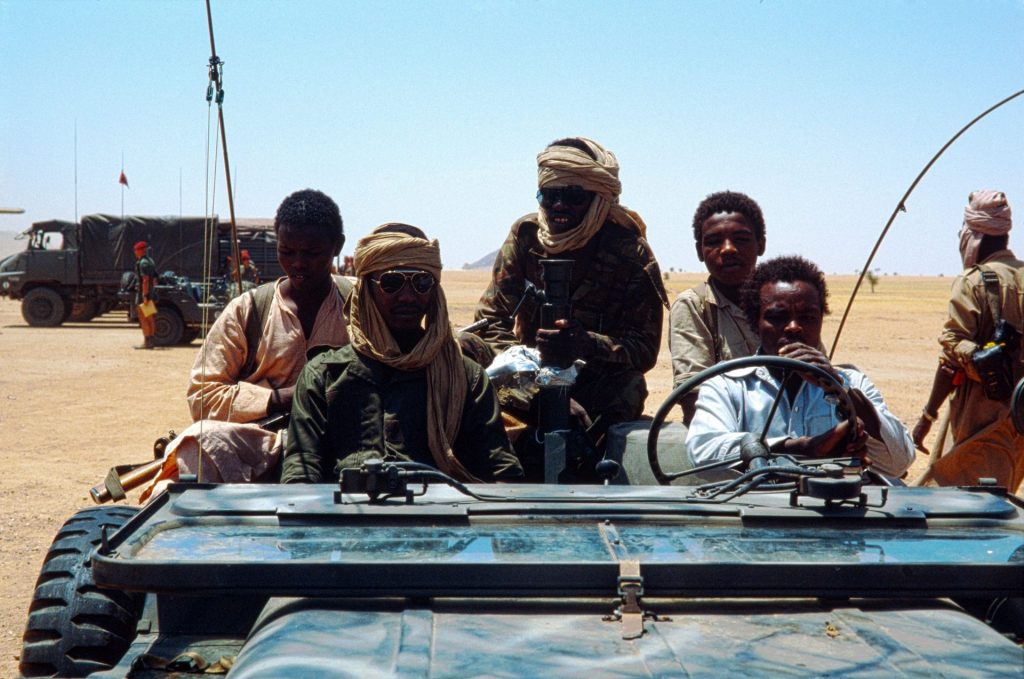
In tacit exchange, they remained silent about his terrible record on human rights and corruption. Déby was killed in a battle against insurgents in April of this year and, in a move backed by Paris, was quickly succeeded by his son.
Militarism and pillage have been central features of Chad’s tragic history from the start. France conscripted Chadians to fight in its European wars and in Indochina, and those veterans formed the backbone of the newly independent state.
Paris might have been content to leave its barren Chadian colony almost entirely to its own devices had it not been for the Cold War, France’s need to maintain an exclusive grip on the uranium found in abundance in next-door Niger, which supplied its nuclear energy industry and weapons programs, or Gaddafi’s recurrent efforts to gain control over Chad.
These included Libya’s annexation in 1973 of the Aouzou Strip, along Chad’s northern border, which has been called the world’s biggest sandbox because of its barrenness.
Gaddafi later sought recognition of all of Chad as part of Libya’s ‘vital space’. France, however, had traditionally seen almost all of French-speaking Africa as its own précarré, or privileged domain, and vital to its standing as a world power.
Such clashing interests formed the basis of a long series of face-offs between Paris and Tripoli over the next two decades, which in turn fueled the proliferation of Chadian armed movements that fought in shifting constellations to take over the country, either as putative defenders of national sovereignty against Libya or against France’s proxies, with the support of Libya.
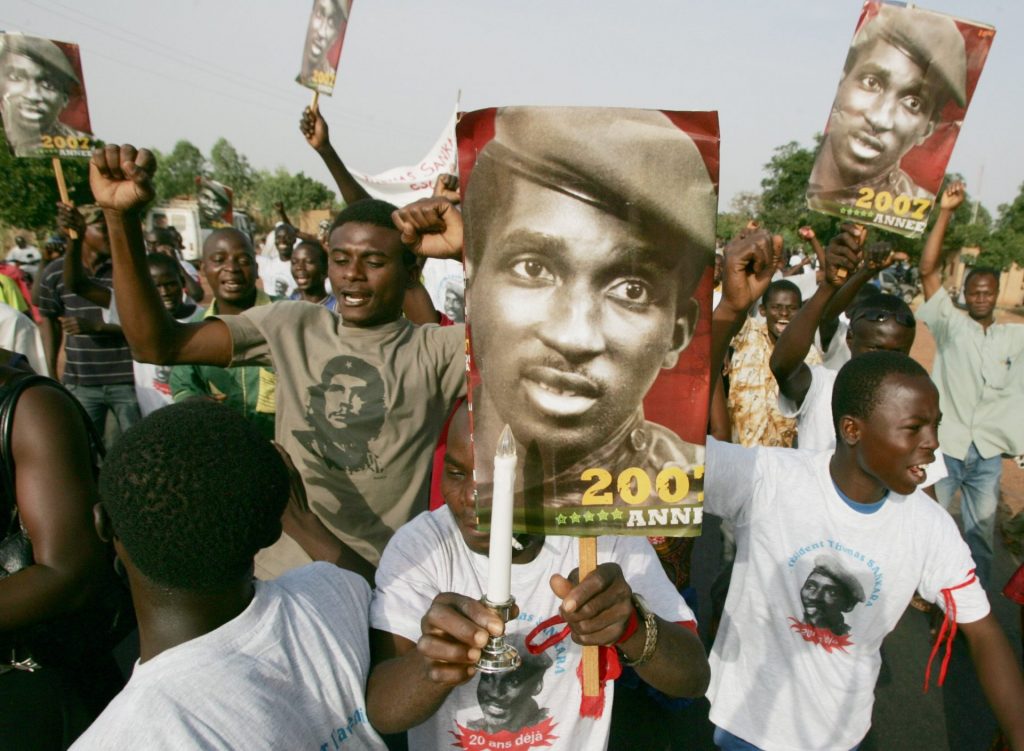
Among the earliest and surely the most redoubtable of the rebel leaders was Habré, who, like Thomas Sankara, seven years his junior, had been trained in French military schools, where he quickly attracted attention for his sharpness and competence.
As he plunged into national politics via warlordism, the viscerally anti-Libyan Habré distinguished himself as the most ruthless and violent Chadian of his era. He became infamous for torching the oases of hostile desert tribes from the north and waged campaigns to exterminate rival clans of fellow Arabic-speaking Muslim northerners, including that of his successor, Déby.
Habré’s men were even more brutal toward southerners, who were predominantly Christian or animist. Inhabitants of entire regions fled, and Habré became known for the extrajudicial execution of captured enemies.
What first brought him to the attention of the French public, though, was a kidnapping-for-ransom ploy in the far-northern town of Bardaï in 1974, during which a German was killed and three other Europeans were captured.
The last of the hostages, a French archaeologist named Françoise Claustre, was released only in 1977, after Habré used the ransom funds to acquire weapons.
Habré’s drive to assume power, which finally reached fruition in 1982, took so long in part because of deep French ambivalence toward him. In 1980 a French foreign ministry note bluntly warned, “Hissène Habré’s brutal and cynical behavior… suggest[s] that if he wins, he’s more likely to become a new bloodthirsty dictator than the unifier that Chad needs.”
Later that year, as Libya’s allies continued making inroads in Chad, France abandoned its reservations about Habré and backed his takeover as the best way to resist further Libyan attacks.
This led to Operation Manta, the enormous intervention that I stumbled into as a novice reporter. Later still, France would continue to back him as he finally drove Libya’s proxies out of the country at the head of a desert army of machine-gun-mounted jeeps.
France under president Valéry Giscard d’Estaing had come around to this position only after seriously considering radical alternatives to supporting Habré, which ranged from withdrawal from the country altogether to, according to Powell, assassinating Gaddafi.
In the end, Giscard sided with Habré, because Gallic pride could not bear the thought of France being defeated by an African force, in this case the Libyan-backed army of Habré’s bitter rival Goukouni Oueddei. “The French beaten by the Libyans and [Goukouni’s ethnic group] the Tubu!” said Giscard. “I could never allow this.”
Powell quotes his foreign minister Louis de Guiringaud, capturing a feeling that is only now fading in France with the costly and humbling failures of its ongoing interventions against Islamic extremism in the Sahel, especially in Mali, where a succession of French-backed governments have proven powerless to provide security against insurgency and terrorist attacks in the countryside: “Africa is the only continent which remains within France’s reach, within the range of its means. The only one where she can still, with 500 men, change the course of history.”
As an opposition leader, Mitterrand had spoken scornfully of French military interventionism in the country, asking during a National Assembly debate, “Why is France fighting in Chad?” In power, however, after his own bouts of reluctance, he came to the same conclusion as his predecessor: “If Niger and Cameroon crack, French influence in Africa is finished.”
Thus, out of fear of falling dominoes, much like the United States in Southeast Asia, France turned a blind eye to the ballooning human rights catastrophe in the country as Habré killed tens of thousands of opponents both real and imagined and presided over the brutal rape and torture of countless others.
Some of Powell’s most interesting material documents how Paris’s domino logic pushed it into supporting Jean-Bedel Bokassa, the delusional autocrat who ruled the Central African Republic.
Feeling that France needed the country as a secure base from which to carry out its interventions in Chad, Giscard told Bokassa: “Believe me, Mr. President for Life, my dear relative and friend, that France deeply feels solidarity towards the Central African Republic which has, under your leadership, committed itself to an in-depth effort to promote economic, cultural, and human development.”
This unreserved support continued even as Bokassa crowned himself emperor in December 1977 and spent an amount equivalent to the entire French annual aid allocation to the country on a gilded coronation patterned on Napoleon’s.
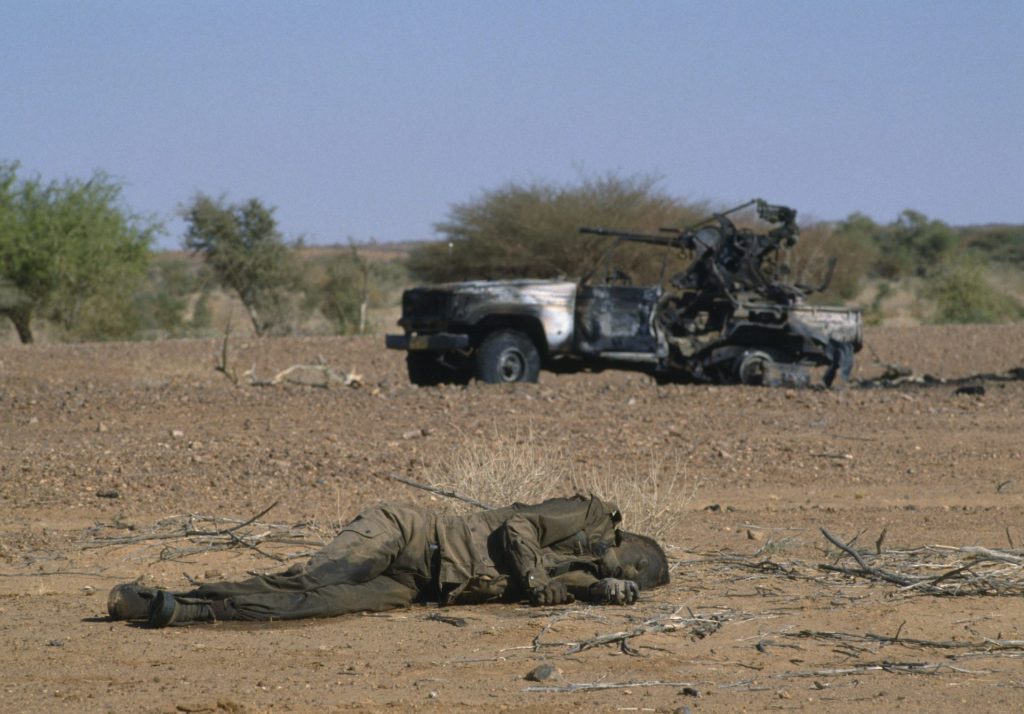
In 1996 I interviewed Bokassa in the capital of the Central African Republic, Bangui, where he had been allowed to return following years of exile after French troops engineered his overthrow in 1979. Bokassa, who had fought for France in its colonial wars in Indochina, had been put in power by France.
He laughed off the claim that he was a cannibal, which had eagerly been used by the Paris media to justify the intervention against him and was later thoroughly debunked: “Every time we have a problem, the French have to come meddle. Finally, you have to ask yourself, are we independent, or are we not?”
In decisively backing Habré, France had been anything but alone. At the behest of William Casey, the director of the CIA, the Reagan administration launched its first covert action in Chad in late 1981 as part of an effort to weaken Gaddafi, according to The Trial of Hissène Habré: How the People of Chad Brought a Tyrant to Justice by the journalist Celeste Hicks.
“Gaddafi’s recent success in Chad ensures that his aggressive policies will pose a growing challenge to US and western interests,” read one early Reagan administration report. The prospect, it said, was “more adventurism” from Libya. The US secretary of state, Alexander Haig, was blunt, saying that increasing covert support for Habré should “increase the flow of pine boxes back to Libya”.
In fact, as Hicks’s book reveals, it was in Habré’s archipelago of prisons and detention centers that bodies were accumulating most rapidly, especially at the most notorious of them, an underground, indoor swimming pool converted into a center of confinement and torture called La Piscine.
The regime’s national security agency, the Directorate of Documentation and Security (DDS), which ran these centres, was headquartered across the road from the offices of USAID (the Agency for International Development), making it implausible that American diplomats were unaware of the atrocities.
An American ambassador to Chad, Donald Norland, had written to Washington in February 1981 to warn, “I feel strongly that helping Habré should be viewed as the least desirable expedient”, citing his record of atrocities and his uncompromising nature. Later that year, Norland resigned, explaining, “I felt that I didn’t want to be associated with this.”
Washington got behind Habré’s regime to the hilt, providing an estimated $182m of economic and military aid in the 1980s, and hundreds of millions more in covert support, according to Hicks. Though I didn’t know it at the time, America’s AWACS reconnaissance planes were providing crucial battlefield information to the French during Operation Manta.
That is not the only way Washington assisted Habré, though. In 1987 the stern dictator, whom victims whispered of fearfully as the “little God”, was welcomed to the White House by Reagan.
That year, contrary to abundant evidence, the annual State Department Human Rights Report concluded that “there were no verified instances of government-instigated political killings” in the country.
Hicks’s book centres on Habré’s conviction in 2016 by the International Criminal Court at a trial in Senegal. He had settled into what had initially been a quiet exile in that country, an other former French colony, after his overthrow by Déby.
Hicks, who was present, recounts that at the start of the trial, Habré had shouted, with no hint of irony, “Down with imperialists. [The trial] is a farce by rotten Senegalese politicians. African traitors. Valet of America.”
Some of the most powerfully damning testimony against him involved sexual violence against female prisoners, including young girls, who were forced to work for Habré’s men by day and then were systematically raped by night.
Hicks writes: “Fatimé Limane, who was pregnant in detention, described how soldiers had inserted bayonets into her vagina, killing her unborn child. Garba Akhaya testified about a female cellmate receiving electric shocks to her breasts and genitals which left her unable to walk.”
He was sentenced to life in prison for, among other things, “crimes against humanity, consisting of the underlying crimes of murder, summary executions, forced disappearances, torture and cruel and inhuman acts”.
This was the first time the courts of one African country had been used to try a former leader of another, and as Hicks notes, the jurists and prosecutors were all Africans. This was made possible, in part, by early work in documenting atrocities in Chad by Amnesty International in the 1980s.
In the following decade, former prisoners of the DDS in Chad began to organise and collect testimonies, and in 2000 Human Rights Watch helped them launch their legal case. In late August of this year, a week after his 79h birthday, Habré died in a hospital in Dakar, Senegal, of Covid-19.
Thomas Sankara was murdered at his office in a carefully planned hit on October 15, 1987.
By that time I had been a metropolitan reporter for the New York Times for about a year, and I remember reading the first wire reports of his death in the newsroom that afternoon.
A day or two later, when I proposed a follow-up article to an editor of foreign news at the paper, he rejected the idea, gently suggesting that I felt too strongly about the man.
Sankara’s successor, his former friend and ally Blaise Compaoré, whose indictment for Sankara’s murder by a military court in Burkina Faso was announced only last April, took over the country and ruled it as an authoritarian strongman for 27 years, usually in close concert with France.
When Compaoré was finally overthrown in a popular revolt in 2014 – he was replaced by a transitional government and, the following year, by a democratically elected president, Roch Marc Christian Kaboré – France, Powell writes, helped engineer his escape into exile in Ivory Coast, where he remains.
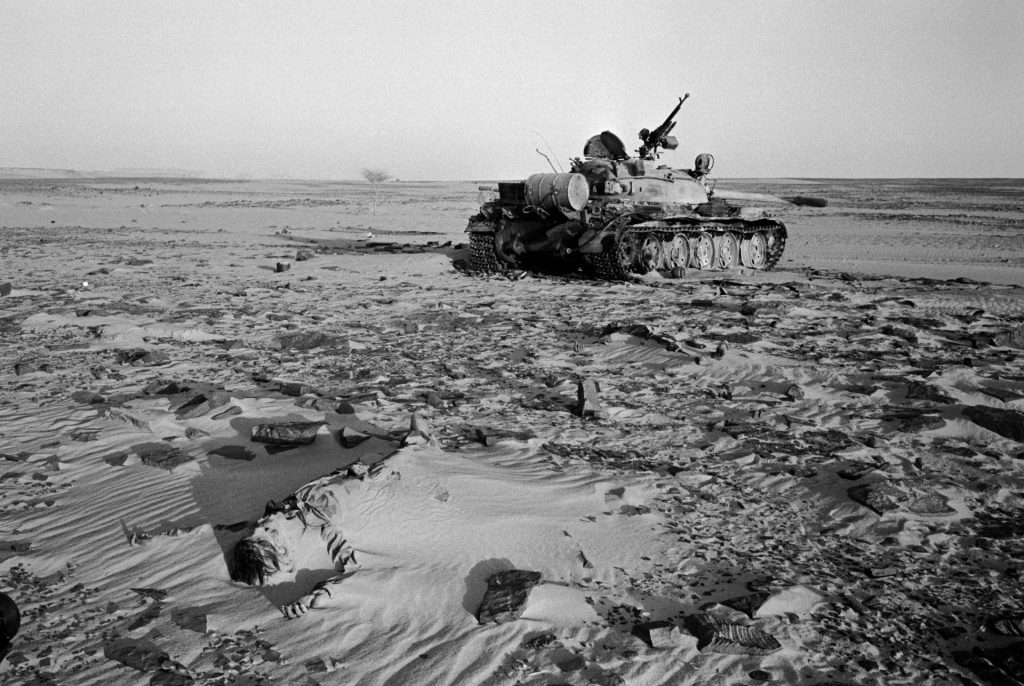
In August, 34 years after the killing, Compaoré was finally put on trial, in absentia, by Burkina Faso for Sankara’s murder.
By the tenth anniversary of Sankara’s assassination, I was West Africa bureau chief for the New York Times, and I visited Burkina Faso to see what remained of the spirit of his revolution.
Fearful of his political ghost, Compaoré’s government had long since banned commemoration of Sankara, arresting people who put up banners bearing his name.
One afternoon I took a taxi to the modest grave and memorial where his body had been relocated from the mass grave in which he was initially buried, along with several others killed in the hit job.
It was on the far outskirts of town, to make it difficult to visit, and yet people had planted small flags, written graffiti in Sankara’s memory, and left mementos.
I decided to try to interview Compaoré, whom I had met at the same time I had gotten to know Sankara. He struck me as a somewhat nervous and taciturn figure then, in stark contrast to Sankara, with his ever-ready smile and optimistic demeanor.
By this time, Compaoré had constructed a lavish presidential palace for himself at Ziniaré, some 20 miles from the capital.
In the spirit of dictatorial overkill all too common in Africa, its expansive grounds included a zoo, with a pet lion that was sometimes promenaded on a chain.
Compaoré remembered me, greeted me inside the gates with an awkward embrace, and insisted that we take a selfie together.
He seemed on edge, and had to have known what I had come to ask him. We sat in the gardens, and I let the conversation unspool for a few minutes before coming to the point. “Did you order the murder of Thomas Sankara?” I asked.
After a pause, Compaoré stood up and, looking shocked, declared the interview over.
Sankara’s followers – including at least one political party that reclaims him as its inspiration – nowadays celebrate his memory openly.
If anything, outside of Burkina Faso his standing as a martyr and inspiration to new generations of African youth has grown even more impressively.
On a continent that by 2040 will have 60% of the world’s people under 30, most of the celebrations of Sankara are conducted by those with no direct recollection of him.
For me, if there is a lesson to his life, it is one that is best seen in contrast to the Habrés and Débys and Bokassas who litter post-independence African history: Western powers have achieved little good or mostly wreaked grave havoc on this continent by imposing their priorities and picking its leaders.
- Thomas Sankara: A Revolutionary in Cold War Africa, by Brian J. Peterson, Indiana University Press
- France’s Wars in Chad: Military Intervention and Decolonization in Africa, by Nathaniel K. Powell, Cambridge University Press
- Living by the Gun in Chad: Combatants, Impunity and State Formation, by Marielle Debos, translated by Andrew Brown, Zed
- The Trial of Hissène Habré: How the People of Chad Brought a Tyrant to Justice, by Celeste Hicks, Zed
This article first appeared in the New York Review of Books.
BUTCHERS, THEIR BACKERS AND THEIR VICTIMS
Thomas Sankara
Charismatic revolutionary president of Burkina Faso from his coup in 1983 to his assassination in 1987. Now considered one of Africa’s most revered leaders. A socially conscious education, healthcare and women’s rights reformer, he memorably criticised Francois Mitterrand at a state dinner for his anti-African policies. Rejected conditional Western aid and criticised Western leaders for meddling in Africa and installing puppets. In return, the West treated him with suspicion.
Goukouni Oueddei
President of Chad from 1979 to 1982. Cold War neutral and supporter of Libya, he presided over an ineffective, squabbling government (Hissene Hebre was his minister of defence and became a personal rival). Seen as a puppet of Gaddafi. During his leadership, there was even a proposal for Libya to annex Chad.
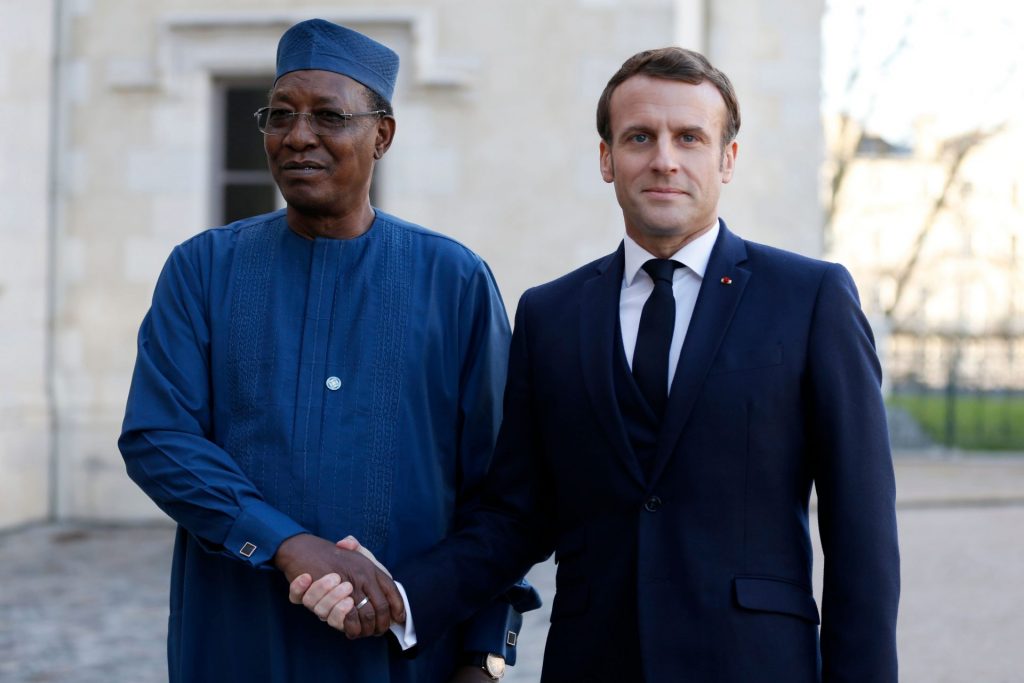
Idriss Déby
Known as a ‘warrior president’ of Chad, Déby, here with Emmanuel Macron, came to power in an armed uprising against and died in clashes with rebels in April. He clung onto power in Chad for more than three decades, becoming increasingly autocratic. A long-time ally of France and other western powers in the fight against jihadists, he had troops in conflicts across the continent, from Mali to Libya.
Jean-Bedel Bokassa
France-backed self-proclaimed ‘emperor’ of the Central African Republic. Took power in a coup in 1965. Known as one of Africa’s most brutal dictators, he faced unproved claims of cannibalism and accusations he fed opponents to animals in his personal zoo. Ousted after his guards killed dozens of schoolchildren on a protest. Trained in the French army and fought for France in Indochina and Algeria.
Francois Mitterrand
France’s longest-serving post war leader, he spoke in favour of democratisation in Africa, but was accused of supporting Africa’s worst autocrats – including Rwanda’s genocide leaders – to maintain French influence in its former colonies. Credited with saying: “Without Africa there will not be any history of France in the 21st century.”
Hissene Habre
Educated in France, supported by America as he seized power in Chad in 1982, Habre is believed to have ordered at least 40,000 political assassinations during his brutal leadership. The US saw him as a bulwark against communism, especially Libya, and helped train his secret police. Reagan invited him to the White House. Overthrown in 1990 by rebels led by Idris Deby, to whom France and the US had transferred their support. Habre died last year of Covid-19 while serving a life sentence in Senegal for crimes against humanity.
Blaise Compaoré
The man who betrayed Sankara. Former friend who overthrew him in the 1987 coup and reversed his leftist pro-Third World policies, leading a repressive regime and forming a strong alliance with France. Held power until ousted in 2014 by a popular uprising, when French special forces helped him escape to Cote d’Ivoire. Goes on trial for Sankara’s murder on October 11.
Muammar Gaddafi
Arab nationalist despot who seized power in Libya in 1977 and ran it with increasing aggression and eccentricity. Presided over failed border conflicts with Egypt and Chad and regularly interfered in Chat’s international affairs. Sponsored foreign militants and allegedly responsible for the Lockerbie bombing in Scotland. Shunned internationally, he was killed by militants after he was deposed during the Arab Spring in 2011.
Alexander Haig
Brusque, ambitious, four star army general who became US secretary of state under Reagan. Keen on intervention abroad. Reportedly described the huge American covert support given to Habre’s rebels as an effort to “bloody Gaddafi’s nose”.
Ronald Reagan
Rejected predecessor Jimmy Carter’s anti-Apartheid, ‘moral’ foreign policy in Africa and shaped his own through the prism of Cold War containment of communism at all costs. Severed diplomatic relations with Tripoli over fears the unpredictable Gaddafi would support communists, and lavished support and hundreds of millions of dollars of aid on Chad and its brutal leader, Habre, with whom he is seen here.
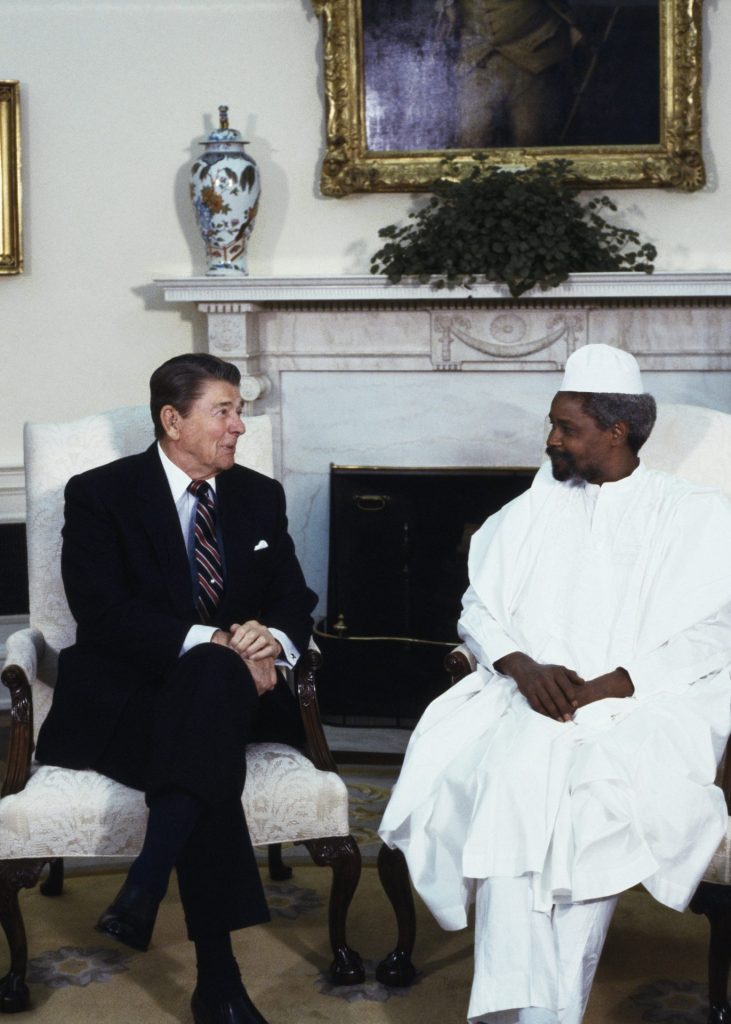
Valery Giscard d’Estaing
Modernising, reformist, pro-European integration 1970s president of France nevertheless continued de Gaulle’s close, interventionist African policy, getting involved in the continent’s conflicts. Controversially close to Jean-Bedel Bokassa in the Central African Republic, who took him game hunting and gave him diamonds. When Bokassa became unpopular he helped drive him out of power in 1979 but installed his cousin instead.

